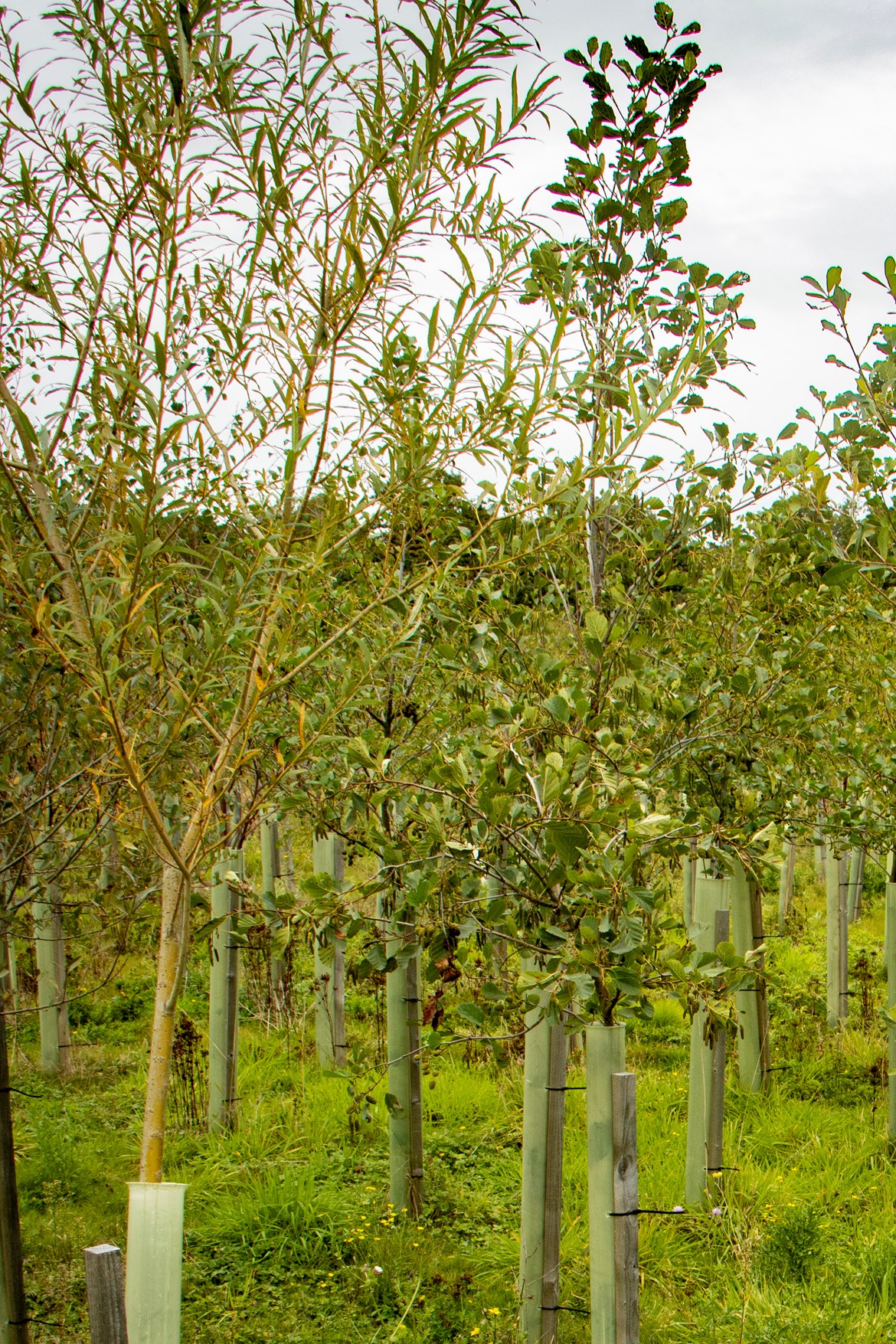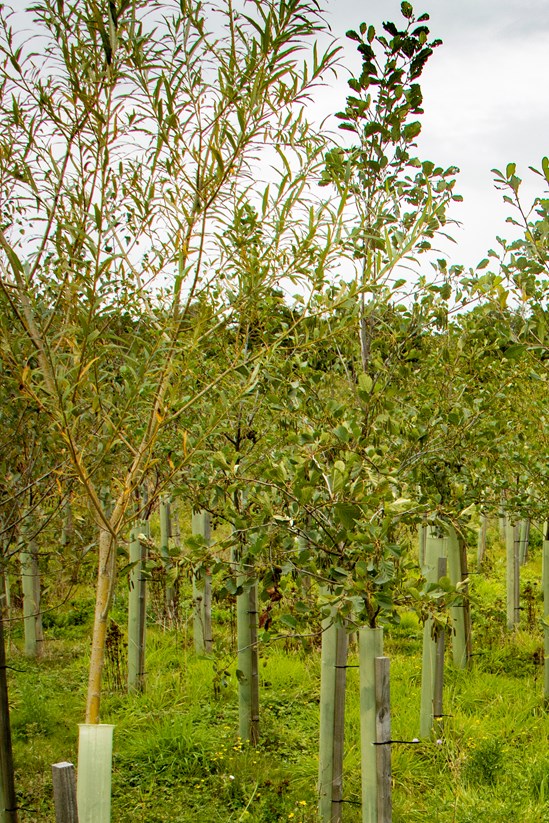HS2 will plant over 300,000 trees this Winter as part of the project’s extensive Green Corridor programme, designed to create a network of bigger, better-connected, climate resilient habitats and new green spaces for people to enjoy.
This adds to the 430,000 trees already planted across Phase One, taking the total to over 730,000 by the Spring. Up to 7 million trees will eventually be planted along Phase One, with many new grasslands, meadows and recreational areas for local communities.
Some of the UK’s most experienced and leading ecological consultants are working with HS2, with the winter programme being carried out by a number of specialist ecology companies subcontracted to HS2’s enabling works contractors, in locations between London and North Warwickshire.
In Warwickshire and the wider West Midlands, 60,000 trees will be planted at locations around South Cubbington Wood, Ashbeds Wood, Fulfen Wood, Ravenshaw and Broadwells Wood. A broad range of tree and shrub species will be planted to reflect each local area, including oak, hazel, birch, holly and hawthorn. This builds on the 80,000 trees already planted in the Midlands, with 40 ponds and many acres of wetland, heathland and meadow also created across the region.
In West Ruislip, planting will create new woodland areas to provide connected habitats for bats. Trees being planted include field maple, hornbeam, hazel, holly, bird cherry, mountain ash, yew and spindle. There will also be areas of grassland and ponds created to protect local biodiversity and create new homes for a mix of wildlife.
Through Hertfordshire, Buckinghamshire and Northamptonshire, advanced planting and woodland compensation planting is being undertaken at West Hyde and Horn Hill, Wendover Dean, Aylesbury, Calvert and near the village of Ladbroke, by specialist ecology and landscape companies.
These planted areas will quickly develop to create new opportunities for wildlife and people, and will bolster local wildlife corridors by linking with existing woodlands and other habitats. New wildlife habitats in a variety of locations also include new badger setts, bat houses, bird boxes, reptile banks and bug houses to help local wildlife populations thrive.
HS2’s Environment Director Peter Miller said:
“HS2’s extensive tree planting programme this Winter is the next step in delivering our Green Corridor which will see up to 7 million new trees and shrubs planted between London and the West Midlands, and which will support delicately balanced local ecosystems running through the spine of the country.
“We are planting more than double the area of woodland than has been affected along the route between Birmingham and London, creating 33 square kilometres of new woodland and wildlife habitat - an area over 7 times bigger than Sherwood Forest Nature Reserve.
“Some of the country’s most experienced ecologists are working with us, and we’re pleased that HS2 can sustain jobs in this specialised profession and play an important role in the UK’s economic recovery. We’re also looking for opportunities to expand the benefits of the green corridor and we encourage local communities to apply for the funding that’s available.”
HS2 funding is available for a wide range of independent environmental projects to benefit nature and communities along the route. This could include creating new parks and play facilities, investing in green spaces in urban areas, regenerating areas along canals, and conserving and enhancing the historic environment. By working in partnership with organisations and individuals, HS2’s Green Corridor will deliver a positive, long term legacy for the natural and historic environment, and for people and communities across the country.
In addition, another separate fund has been established to help local landowners create new native, broadleaf woodlands and restore existing ancient woodland sites. Through the HS2 Woodland Fund, a total of £7m is supporting projects on Phase One and Phase 2a. The first £1.25m has been allocated as part of a grant scheme managed on our behalf by the Forestry Commission, supporting 28 woodland projects that will deliver approximately 105 hectares of new woodland and restore a further 68 hectares of ancient woodland.
HS2 has already used over 39,000 biodegradable tree guards on new habitat sites, and these will be used in the next phase of planting. Made from 100% recycled card, the tree guards completely decompose once the trees are established, leaving no waste products to recycle or remove. They are designed to replicate nature, ventilated to prevent overheating, capable of drainage and encouraging upward growth.
Crowders Nurseries, a family run SME in Lincolnshire, was awarded an HS2 contract in 2016 and is growing over 40 different species of tree including species that are native to each area.
ENDS

